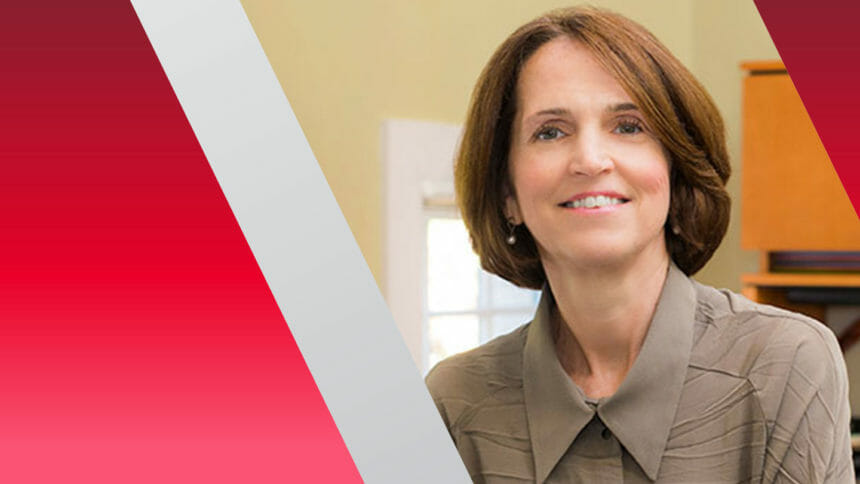
The leader of the nation’s second-largest nursing home association urged long-term care providers to “change the narrative” about the sector, as her group works to raise awareness and accessibility issues impacting the industry.
“The general lack of awareness and understanding of our sector isn’t new, but the past two years have shown us that it’s all the more critical that we help the public come to know our field,” Katie Smith Sloan, president and CEO of LeadingAge said in a call to action Thursday.
“As the COVID pandemic turned even more attention to older adults and aging services, we really believe that now is our chance to reset the narrative about the important care and services providers delivery every single day,” she added.
Her comments came during an online discussion to mark Older Americans Month. Sloan was joined by other industry experts on affordable housing, home- and community-based services, workforce and policy to discuss barriers preventing seniors from aging in the setting they prefer.
Skilled nursing providers in particular have taken criticism from state and federal leaders since the start of the COVID-19 pandemic. That culminated in President Joe Biden’s nursing home reform initiative, which calls for officials to crack down on providers through more oversight.
Sloan noted that recent research by LeadingAge revealed 70% of older adults will need long-term care services, and they have a range of options available to them but “that fact alone isn’t well understood by the public.”
“I think there are many reasons why the public is uncertain about our field,” she said, citing fear and denial of aging. “Research shows that many people are concerned about being alone, needing care in a nursing home or experiencing health issues as they age, particularly dementia. Those fears play an indisputable role in shaping perceptions of aging services.”
But additional LeadingAge research shows 45% of US adults have a favorable perception of the long-term care field, which is twice as many as those who have a negative view. She added that data shows 70% of people who have already used long-term care services will likely recommend it to others.
“That tells us that the care, services and housing that we provide are valued. We just need to be sure more Americans are aware of them,” Sloan said.
She added that shifts in public perceptions don’t happen overnight. The key to the sector’s collective success will be working together over time.
“The only way we’re going to be able to achieve the mission of our individual organizations and of our sector at large is if we can break through the noise with messages that we know will resonate with the public,” Sloan said.
“It’s going to take a village [with] everyone working in alignment, and I believe it’s our duty to ensure that older adults and families better understand the choices they have and how to access them as they grow older,” she added.
Additional coverage from the event can be found on the McKnight’s Senior Living and McKnight’s Home Care sites.




